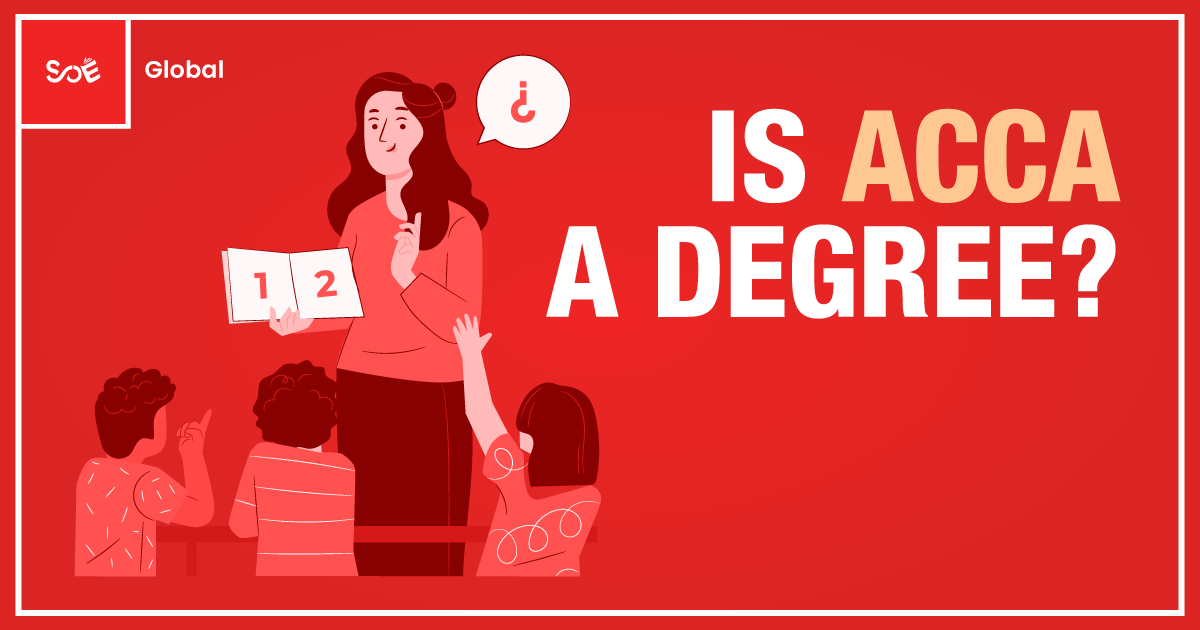Is ACCA a Degree?
ACCA, one of the most popular accounting qualifications in the world, takes the center stage as one of the most prominent and recognized courses. It offers members perspectives and skills in a wide range of topics across accounting, finance, and other allied sectors. Most tax jurisdictions across the world recognize and accept ACCA as a qualification of repute. The ACCA title and qualification puts members in a different league and opens up a world of opportunities in a melange of sectors including Accountancy, Banking, and Finance.
The one question on many people’s mind is : Is ACCA a degree?
Have A Query About ACCA, Book a Free Consultation Now!
Is ACCA equivalent to a degree?
ACCA is a Professional Qualification or Professional Degree that is recognised by several countries across the globe. It is offered by an internationally recognised body that has many decades of repute to its credit.
ACCA Certificates are offered in proper convocation ceremonies conducted across the globe. In all aspects, pursuing an ACCA is either equivalent to or better than pursuing a conventional degree program.
While ACCA by itself isn’t a conventional undergraduate degree (like a bachelor’s degree in a traditional University), most universities and educational providers recognise ACCA as an equivalent of a bachelor’s degree in accountancy. The credits obtained while pursuing the ACCA Qualification can be used for the purpose of obtaining credits towards a master’s degree or an advanced study program.
In Fact, An ACCA Qualification is even considered to be equivalent to a master’s degree in some countries like UK! However, ACCA is more than just another degree. In addition to being a professional degree, It opens up multiple career prospects through the world.
From a practical perspective, an ACCA accreditation can work wonders for a student’s career. Here is a quick rundown of ACCA career prospects and its benefits :
– Deep knowledge of IFRS : ACCA equips members to expand their horizons in countries like the UK, Canada, Singapore, and Australia. IFRS is recognised and followed by over 180 countries and ACCA members can find gainful employment in all these nations.
– Adaptable Qualification : Since the ACCA is a fluid course, it accommodates all relevant qualifications already acquired by the candidate. Anyone right from a high school student, to an MBA graduate can accentuate their portfolio through the potential of ACCA. Obtaining exemptions (similar to credit transfer) is facilitated by ACCA at all levels.
– Complete Flexibility : Professionals and students can pursue an ACCA qualification irrespective of other commitments. For instance, a candidate can split their time between another degree and an ACCA accreditation to boost their career profile.
– Work Experience : The three years of work experience obtained while pursuing the Practical Experience Requirements of ACCA, counts for work experience in the industry and equips candidates with real life skills. This not only helps in gaining valuable experience, it also helps serve as a launch pad for the career post obtaining ACCA membership.
The Professional Qualification Advantage :
A Professional qualification is a designation earned by a person to assure qualification to perform a series of tasks and jobs that require a significant amount of skill.
Being equipped with an ACCA qualification is an indication that the person is equipped with skills and knowledge in accountancy, finance, and corporate law, which indicates the ability to plan finances, conduct a range of accounting operations and deal with all current and future monetary transactions. It also indicates a level of proficiency in the numeracy and analytical abilities of the person. ACCA members have the authority to sign audit reports in Singapore, UK and several other nations!
ACCA isn’t just another course! It is a Professional Qualification that sharpens and prepares one for handling multiple roles across Banking, Finance, Accountancy and Corporate Law Sectors.
